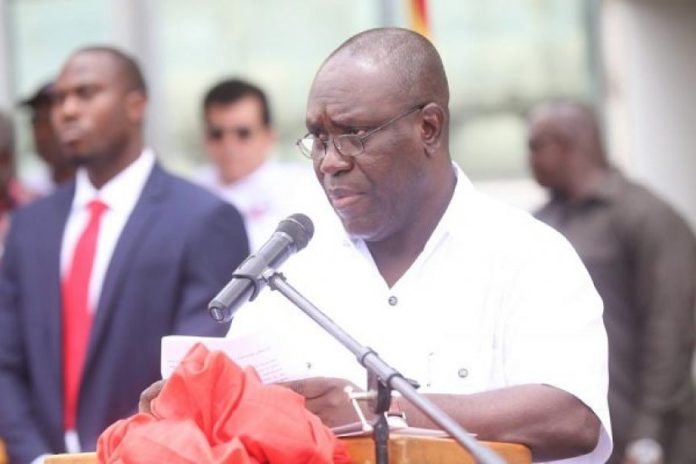
Improving living standards: Enforce minimum wage — TUC

The strict enforcement of the new National Daily Minimum Wage (NDMW) will result in a substantial improvement in the living standards of workers nationwide.
Although the rise in the figure from GH¢11.82 to GH¢12.53 per day of eight working hours for this year was the lowest since 2000, evidence showed that not many employers complied with it to the letter.
These were the concerns of the Trades Union Congress of Ghana (TUC) in an interview with the Daily Graphic yesterday.
The Secretary General of the TUC, Dr Anthony Yaw Baah, shared these views after the National Tripartite Committee — the government, labour and employers — announced a six-per cent increment in the National Daily Minimum Wage (NDMW).
The new figure translates into a 71Gp increase from GH¢11.82 to GH¢12.53 daily, the lowest jump since 2000.
The committee also pegged the wage for 2022 at GH¢13.53. While the 2021 wage took effect from yesterday, the 2022 wage will be effective on January 1, next year.
Survey
Dr Baah said a survey by the union showed that the wages of most pump attendants at the various filling stations, domestic and factory workers, people working in hotels and other hospitality service providers were always below the required minimum wage.
“The minimum wage covers all employers; both public and private, foreign and local but quite a number of these enterprises do not respect it. I can tell you that even if we enforce this low wage, the living standards of workers will be improved,” Dr Baah said.
The TUC Secretary-General, therefore, called on the National Labour Department (NLD) under the ministry to ensure that employers complied with the NDMW to help cushion workers and their families against the rising cost of living.
Living wage regime
Dr Baah said it was good that the country had a minimum wage in place but said that must be transformed into a living wage to benefit workers, their spouses and children.
He said unlike the minimum wage that was focused only on the worker, a living wage was often set to cater for the worker, his or her spouse and two children.
Dr Baah said efforts to move from a minimum wage to a living wage had been derailed by erratic economic growth and expressed the hope that the successful recovery from the COVID-19 pandemic would revive the discussions.
“Wage is not only a cost to employers and the economy but also a source of consumption and economists will tell you that any economy recovering from a pandemic needs increased consumption to be able to return to the path of sustained growth,” Dr Baah said.
Assurances

Mr Alex Frimpong
In a separate interview yesterday, the Chief Executive Officer of the Ghana Employers’ Association (GEA), Mr Alex Frimpong, pledged to ensure that institutions complied with the new minimum wage.
He said almost 95 per cent of employers complied with the NDMW and the association would strive harder to get the rest to do so.
Mr Frimpong said employers were hopeful that the increment would help sustain industrial harmony for workers to give of their best and help lift the economy out of the shackles of the pandemic.
The Deputy Minister of Employment and Labour Relations designate, Mr Bright Wireko-Brobbey, said his outfit would resource the Labour Department to enforce the requirement.
Announcement
The announcement follows more than one month of tough nd in determining the amounts, it took into account the impact of the COVID-19 pandemic on the national economy, cost of living, sustainability of businesses and desirability of attaining high level of employment.
It said the increments took effect from June 4, 2021 and next January 1, 2022, and further recommended that the NDMW should be tax exempt.
Tough negotiations
The TUC Secretary-General and the CEO of the GEA, who have been part of such negotiations since 1992, said this year’s was the toughest as the conversation had gone on for six weeks, aside from informal discussions.
They said the devastating impact of the pandemic on lives, businesses and the economy made it difficult for labour and employers to come to a consensus quickly.
They said while labour wanted an increment that would help cushion them against the high cost of living resulting from the pandemic, employers wished for no increment as a way to help them recover from the fallouts of the pandemic.
They, however, explained that both sides later found wisdom in six per cent and eight per cent increments for 2021 and 2022 respectively to help assuage the plight of workers, while helping businesses and the economy to recover.





























